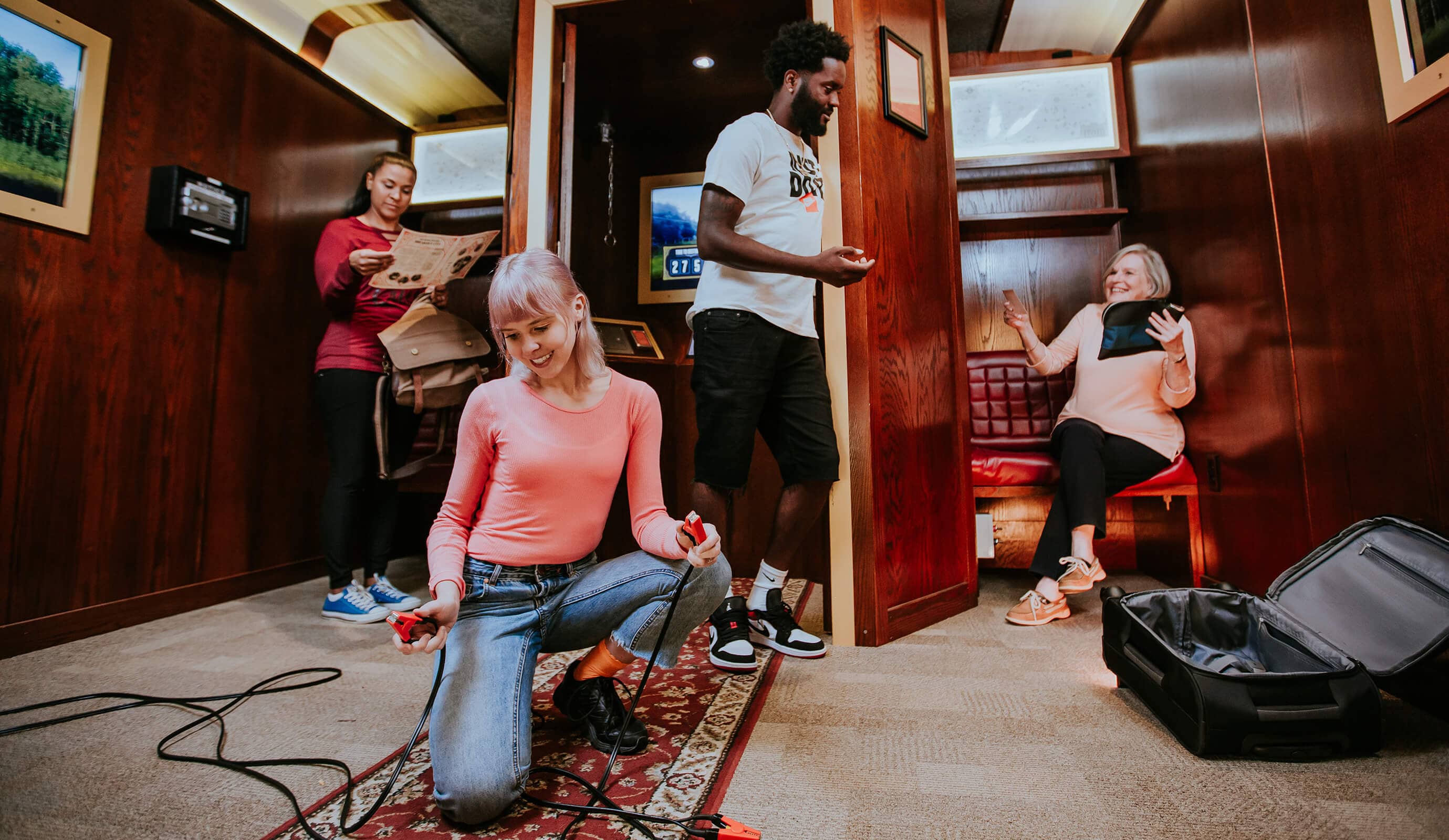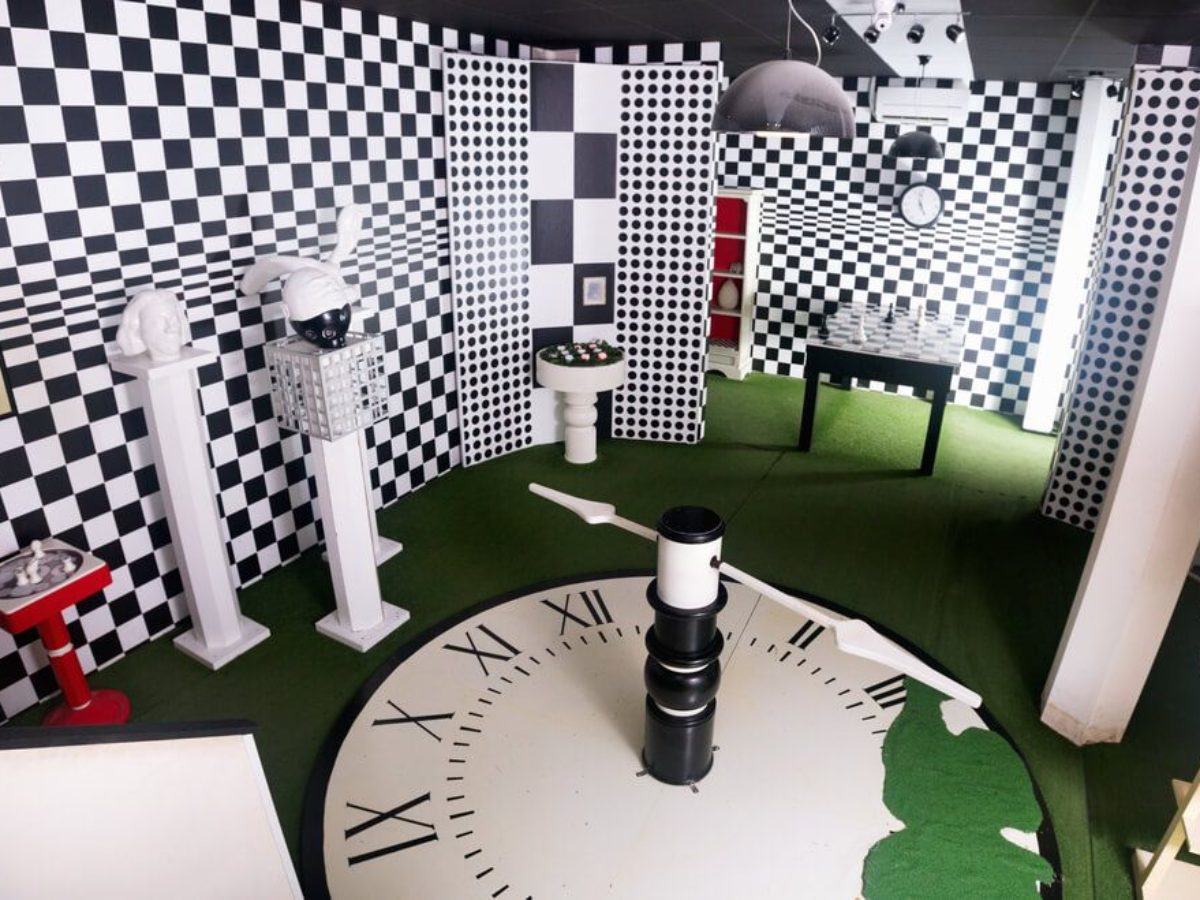Explore the Best Escape Room in Minneapolis-- Schedule Your Experience
Explore the Best Escape Room in Minneapolis-- Schedule Your Experience
Blog Article
Group Approaches: Just How to Collaborate Successfully in a Retreat Room
Browsing the intricacies of a getaway room necessitates more than plain excitement; it calls for a well-coordinated strategy based in clear communication, calculated function jobs, and proficient time monitoring. Teams should actively pay attention to each participant's understandings, designate duties that align with private strengths, and keep regular check-ins to guarantee emphasis and avoid redundancy. By fostering a setting that values cohesion and flexibility, teams can substantially enhance their efficiency and success rates. The nuances of these strategies can change the experience, but how exactly can they be implemented to optimize the possibility for success?
Establish Clear Interaction

To promote clear interaction, it is necessary to assign a main factor of get in touch with for info circulation. Quick, focused updates from each group member can keep the team notified without frustrating them with details.

Assign Duties Tactically
While clear communication establishes the structure for reliable team effort, designating roles strategically ensures that each employee's toughness are utilized successfully. In an escape room situation, the time-sensitive and complex nature of obstacles necessitates an efficient technique to job delegation. By recognizing and leveraging specific proficiencies, groups can enhance their analytic abilities and improve general performance.
Someone with a keen eye for information could stand out in locating concealed items, while a logical thinker might be much better suited to solving challenges. This role frequently calls for strong organizational and social abilities.
Second, guarantee that duties are flexible and versatile. As new challenges emerge, the group should have the ability to pivot, reapportioning tasks as called for. This adaptability assists keep energy and prevents bottlenecks that could happen because of stiff function projects.
Eventually, a calculated method to duty job not just makes the most of the toughness of each group member yet also fosters a natural environment, driving the team towards an effective retreat.
Make Use Of Diverse Skills
Identifying and taking advantage of the varied skills within your team can considerably elevate your performance in a retreat area. Each employee brings unique toughness to the table, and successfully leveraging these capacities can accelerate analytical and boost general effectiveness. A group member with solid analytical abilities might succeed at analyzing complicated codes or patterns, while another with keen observational abilities may rapidly detect concealed clues that others might neglect.
Efficient interaction is key to making use of these diverse abilities. Urge team participants to articulate their insights and ideas quickly, making sure that all possible remedies are considered. This comprehensive strategy cultivates a vibrant environment where imagination and important thinking can prosper. Additionally, designating tasks that line up with each member's toughness can stop bottlenecks and make certain that progress is constant.
In addition, variety in skills frequently equates to diversity in believing styles, which is vital in an escape space setup. While some obstacles may require sensible reasoning and accuracy, others may take advantage of imaginative and lateral thinking. By acknowledging and leveraging this diversity, groups can attend to a more comprehensive variety of obstacles much Home Page more efficiently, thereby increasing their chances of a successful getaway.
Manage Time Properly

Recognize visible puzzles and separate jobs based on team participants' strengths, guaranteeing that nobody is still. This practice can help keep the team focused and prevent time from sliding away unnoticed.
In addition, avoid one-track mind. If a problem is taking as well long, revolve staff member or carry on to an additional obstacle, returning later with fresh perspectives. Interaction is vital-- keep every person upgraded on solved puzzles and continuing to be tasks to stay clear of repetitive initiatives.
Finally, utilize any kind of hints or ideas moderately yet strategically - best escape room. Recognizing when to ask for assistance can save valuable time. By sticking to these time administration principles, groups can considerably enhance their opportunities of a successful and pleasurable retreat area experience
Debrief and Show
Representation is a crucial element of team advancement and enhancement in the context of retreat areas. As soon as the challenge is completed, whether efficiently or not, it is vital for the team to take part in an organized debriefing session. This procedure allows staff member to assess their efficiency, recognize strengths, and pinpoint locations for enhancement.
Begin the debrief by reviewing what went well. Highlight particular circumstances of reliable communication, analytic, and collaboration. Recognizing these favorable behaviors enhances them and motivates their explanation their rep in future challenges.
Talk about minutes of confusion, miscommunication, or inefficient approaches. Urge an open and constructive discussion where group members can share their perspectives without worry of objection.
Conclusion
In verdict, effective cooperation in an escape space is predicated upon clear communication, tactical duty projects, the effective usage of varied abilities, and efficient time management. Routine check-ins and organized debriefings are crucial for maintaining focus and promoting constant enhancement. By creating a cohesive and flexible group environment, the probability of efficiently that site fixing challenges and achieving the goal of leaving the room is dramatically boosted. This technique not only makes sure success however additionally advertises cumulative growth and understanding.
Report this page